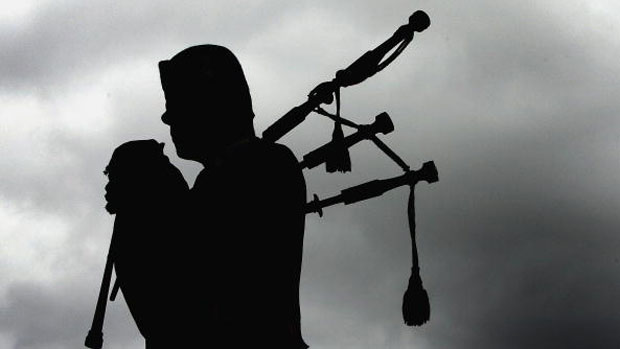Who was St Andrew? From apostle to Scotland's patron saint
First Minister Nicola Sturgeon urges Scots to mark St Andrew's day by performing an act of kindness

A free daily email with the biggest news stories of the day – and the best features from TheWeek.com
You are now subscribed
Your newsletter sign-up was successful
Get ready for a skirl of bagpipes, a dram of whisky and just about every other stereotype you can think of as Scotland celebrates St Andrew’s Day.
In her annual St Andrew’s day address to the nation, Nicola Sturgeon urged Scots at home and abroad to commemorate today’s holiday by performing an act of kindness.
“It’s a great way of marking this special day - and of making life a little bit brighter for our friends and neighbours,” the First Minister said.
The Week
Escape your echo chamber. Get the facts behind the news, plus analysis from multiple perspectives.

Sign up for The Week's Free Newsletters
From our morning news briefing to a weekly Good News Newsletter, get the best of The Week delivered directly to your inbox.
From our morning news briefing to a weekly Good News Newsletter, get the best of The Week delivered directly to your inbox.
The values of compassion and solidarity “are central” to the story of St Andrew and Scotland’s national identity, she added.
“We’re encouraging everyone to celebrate these values, by performing an act of kindness today,” Sturgeon said. “That could mean helping out your neighbours, giving time or money to charity; or simply offering friendship and company to those who need it most.”
So who was St Andrew and what does he represent?
When is St Andrew's Day?
A free daily email with the biggest news stories of the day – and the best features from TheWeek.com
Although it has been celebrated in Scotland on the 30 November for hundreds of years, St Andrew's Day was only made an official public holiday in 2006.
In fact, the tradition of celebrating St Andrews day in November was not even technically started in Scotland, but by a group of wealthy Scottish immigrant in the US who were keen to reconnect with their Scottish roots and spread the saint's philanthropic beliefs, says Scotland.org.
Who was St Andrew?
Andrew, the brother of St Peter, was born between 5AD and 10AD in a fishing village in Galilee and became the first disciple of Jesus after meeting St John the Baptist on the banks of the river Jordan.
According to the Bible, it was Andrew who pointed out to Jesus the presence of a young boy with loaves and fish, leading to the feeding of the five thousand.
Later, the disciple made his way across Europe, spreading the Gospel in Hungary and Poland before travelling to Patras, Greece, where he is believed to have been crucified by the Roman governor Aegeas for preaching Christianity.
“Like Jesus, Andrew died a martyr, and was crucified in Greece on an X-shaped cross in 60 AD, rather than the 'T' shape cross that Jesus was crucified on,” says the Daily Telegraph.
Legend says the saint requested this himself, as he did not feel worthy of being crucified in the same position as Jesus, although this aspect of the tale only appeared in the Middle Ages.
Whether the story is true or not, the X-shaped cross, known as a saltire, was chosen as the central feature of the Scottish flag as a tribute to Andrew.
How did he become the patron saint of Scotland?
In the fourth century, a monk named St Regulus is said to have arrived in Scotland with supposed relics of St Andrew, which included his kneecap and three fingers. A cathedral was built to house them in 1158 in Kilrymont, which was renamed St Andrews, but both the cathedral and relics were destroyed by Protestant reformers in the 16th century.
The connection with St Andrew has appeared elsewhere in Scottish legend. “In 832 AD Andrew is said to have appeared in a vision to a Pictish king the night before a battle against the Northumbrians,” says Scotland.org. The next day, a saltire appeared in the sky above the battlefield and the Picts were victorious.
But while St Andrew might be close to the hearts of Scots, they share his patronage with Greece, Ukraine, Romania, Barbados and Russia, as well as Bruges in Belgium and the Italian town of Amalfi, which became his final resting place after his remains were moved there from Constantinople the 1200s.
According to folklore, Andrew is also expected to look after gout, singers, sore throats, stiff necks, unmarried women, fishmongers, fishermen and old maids.